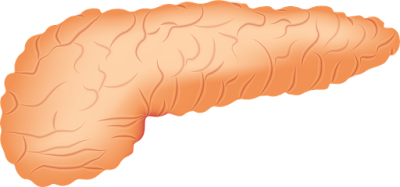Diet for cancer patients
The diet in the treatment of cancer
The so-called. nutrition oncology is widely believed privilege reserved only for the few. In fact, almost every patient can benefit from dietary care in this regard.What's more, sometimes the mere elimination of errors habits in a positive way affects the health of the patient, improving its performance and well-being.
The first step aimed at specific support the body in fighting disease should therefore be thoroughly consulted with a qualified clinical nutritionist. As the practice shows, the level of knowledge about nutrition in case of struggle with cancer in our society is alarmingly low.
The problem is that patients generally eat it, what they want, and not what improves their health. Thus the additional strain on your immune system, which at the time therapy produces a number of substances aimed to fight the disease m. In. as a cytokine or NK cells.
Warning! Poorly nourished the system becomes and the less efficient, causing the lock intracorporeal before the fight with the intruder, and at the same time adversely affects other organs necessary for digestion or even breathing.
Individual approach
The basic reason for this state of affairs are too small amounts of protein, vitamins and minerals in the diet. But it is not everything. Equally pernicious is proving to be a shortage of energy, which should provide even more than for healthy people.At the same time the whole matter should be approached individually in each case. There is no general guidelines for the caloric content of meals for people struggling with cancer. Is a real need for calculated on the basis of patient's body weight, general state of nutrition or any concomitant diseases.
For this reason, it is absolutely unacceptable preferably diets family or friends. Each system has, after all other requirements, and in the case of diseases with increased aggression on the tissue, all such activities can have a significant effect on our health!
Another, far larger and more complex problem in the field of diet therapy in oncologic diseases is malnutrition, ie. cachexia.
As shown by recent studies, the resulting mortality rates as high as 30-50% of all patients! In other words, almost half of the cases, the main cause of complications of malnutrition of cancer is dangerous and not the disease itself.
Correct amounts of
It is worth remembering that in order to dietoterapia had any chance to help the patient should be started before the scheduled treatment.
Unfortunately, during chemotherapy, radiotherapy and during the perioperative most patients have problems with the intake of food, which results in significantly weaker absorption of nutrients. The solution in this case are continuously introduced changes in the menu, so that the treatment was continued and it was possible to hold up although part of the initial recommendations.
When determining the diet is necessary to calculate precisely the content of individual elements. Also, please note that the increased amount of energy can not come from random foods, but must be closely matched to the components that modulate the immune system to produce antibodies.
What to include in your diet?
Cancer patients should therefore first of all to choose fresh and easily digestible meals with natural herbs and spices. Due to the increased demand for protein can safely reach for dairy products, eggs, white meat (turkey, rabbit, lean fish) and red, in addition to supplying iron or vitamin B12.A good idea would be to include in your diet vegetables and fruits rich in anthocyanins and vitamin C berries, blueberries, cranberries, aronia, currants, strawberries, raspberries, eggplant, parsley, beans, broad beans and lentils.
Then there are the Brazil nuts, almonds, pumpkin seeds, seeds, linseed and CHIA, vegetable oils rich in Omega-3 essential fatty acids and flaxseed and canola, and olive oil.
Certainly you should avoid while m. In. a heavy foods, fried foods, fatty meats, canned, smoked products, sweets, excess salt, highly processed vegetables and fruits, citrus, early vegetables and sunflower seeds.
Finally, it should also be recalled that these recommendations apply not only to the time of treatment, but are intended to prevent the recurrence of the disease. They should therefore be treated prophylactically also appropriate dietary behavior allows for the protection of all organs and to stabilize the health situation.


Comments
Post a Comment